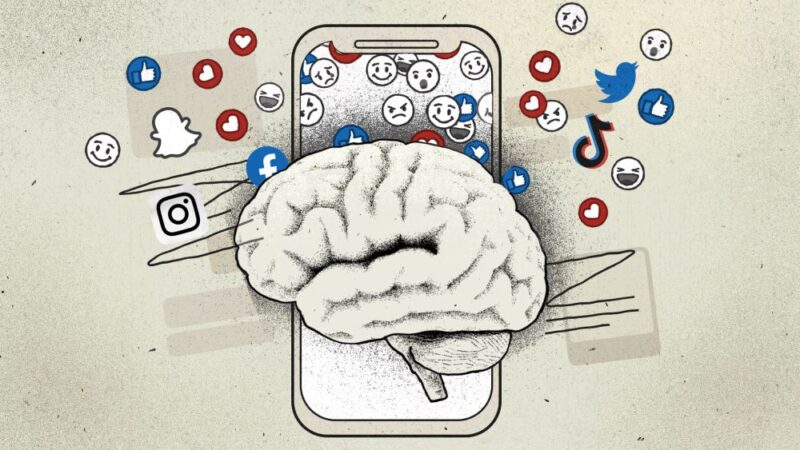Social media is everywhere. Whether it’s scrolling through photos, watching short videos, or engaging with friends online, these platforms have become a part of daily life for many. But what happens when this constant engagement becomes harmful? More importantly, can you sue for damages caused by social media addiction?
What Is Social Media Addiction?

Have you ever noticed how easy it is to lose track of time while scrolling? Social media addiction refers to the excessive and uncontrollable use of platforms like Instagram, TikTok, and Facebook. It’s not officially classified as a medical diagnosis, but it shares similarities with other behavioral addictions. The dopamine hit you get from likes, comments, and notifications makes it easy to keep coming back for more. Over time, this pattern can disrupt normal life, especially for teens and young adults.
Adolescents are particularly vulnerable. Their brains are still developing, which makes them more likely to crave the instant gratification social media offers. This dependency can lead to real-world consequences like poor sleep, declining grades, strained relationships, and even mental health issues such as anxiety or depression.
But can this kind of harm translate into a legal case? Let’s break it down.
Why Are Social Media Companies Being Sued?
In recent years, lawsuits have emerged claiming that certain platforms intentionally design their algorithms to keep users hooked. Some argue that these companies knowingly put profit above the well-being of their users, particularly young people. These lawsuits often allege that:
- Platforms use addictive algorithms – The endless scroll, notifications, and personalized feeds are carefully crafted to maximize screen time.
- Inadequate content filtering – Harmful content, such as posts promoting self-harm, eating disorders, or unrealistic beauty standards, often slips through.
- Failure to warn users – Critics say companies should do more to educate users about the risks of excessive use.
For families affected by severe outcomes—like a teen developing a mental health condition or even engaging in self-harm—these claims can feel like a way to hold powerful companies accountable.
What Are the Side Effects of Social Media Addiction?

Social media addiction isn’t just about spending too much time online. It can impact various areas of life, especially for younger users. Here are some of the most common effects:
- Sleep issues – Many teens sleep with their phones nearby, waking up throughout the night to check notifications. This sleep disruption can lead to exhaustion, irritability, and even long-term health issues.
- Mental health struggles – Excessive use is linked to anxiety, depression, and lower self-esteem. Constant comparisons to others’ curated lives can make young users feel inadequate or isolated.
- Academic decline – When social media takes priority over schoolwork, grades often suffer. Lack of focus and sleep deprivation only make this worse.
- Strained relationships – Addicted users may prioritize online interactions over real-life ones, leading to disconnection from family and friends.
- Self-image issues – Platforms often showcase heavily edited or curated content, creating unrealistic standards that can damage confidence and self-worth.
For parents, seeing these side effects in their child can be heartbreaking. But what legal options are available if you believe social media has caused significant harm?
Who Can File a Lawsuit?
If you’re considering legal action, eligibility is a crucial first step. You need to understand what creates a situation whereby a social media addiction lawsuit would be recommended. Generally speaking, such a case can be filed if any of the following apply to your situation:
- The user developed significant physical, mental, or emotional harm due to their platform use.
- The harm occurred before the user turned 25, as young people are most vulnerable.
- There’s evidence showing the platform’s role in causing or worsening the addiction.
Parents can also file lawsuits on behalf of their children. These cases usually involve gathering proof that excessive social media use directly led to harm, such as medical records, evidence of behavioral changes, or expert testimony.
What Are the Potential Payouts?
Settlement amounts vary widely depending on the severity of the case. Generally, payouts fall into three categories:
- High-value cases – Involving severe harm, such as teen suicides or life-altering mental health conditions, settlements can range from $900,000 to over $3 million.
- Moderate cases – These might involve non-fatal but serious consequences like self-harm, eating disorders, or long-term depression. Settlements often range from $300,000 to $900,000.
- Lower-value cases – For temporary distress or less severe effects, payouts typically range between $30,000 and $150,000.
While these amounts may seem significant, they also reflect the profound impact that social media addiction can have on a person’s life.
The Legal Process: What to Expect
Filing a lawsuit might feel daunting, but understanding the steps can make it more manageable. Here’s a general outline:
- Consult a legal professional – Start by finding an attorney experienced in social media addiction cases. They can evaluate your situation and determine if you’re eligible to file.
- Gather evidence – This could include medical reports, screenshots of harmful content, and records of app usage.
- File the lawsuit – Your attorney will handle the paperwork and legal filings, ensuring everything is submitted within deadlines.
- Negotiations – Many cases settle out of court, but if a fair agreement can’t be reached, the lawsuit may proceed to trial.
- Await the outcome – If the case goes to court, a judge or jury will determine the verdict and any compensation.
Having the right legal team on your side can make a big difference in navigating this process successfully.
Are Certain Platforms More Addictive Than Others?

While nearly all social media platforms can be addictive, some are particularly effective at keeping users engaged. According to research, the most addictive platforms are:
- Snapchat
- Twitter (X)
- TikTok
These platforms often use features like infinite scrolling, short video formats, and algorithm-driven content to encourage users to spend more time online.
Why These Lawsuits Matter
Social media addiction lawsuits aren’t just about financial compensation—they’re also about accountability. By holding companies responsible, these legal actions aim to encourage better safeguards for users, particularly vulnerable groups like teenagers. For parents, filing a lawsuit can also be a way to stand up for their child and advocate for meaningful change.
Taking the Next Step
If you or someone you know has been negatively affected by social media, it’s important to know that legal help is available. Consulting a professional can help you understand your rights and what’s possible in your specific case. Social media addiction isn’t something anyone should face alone—and taking action can be a step toward justice.








